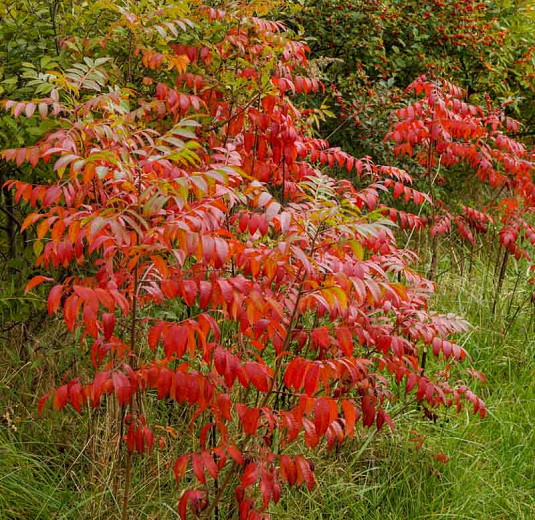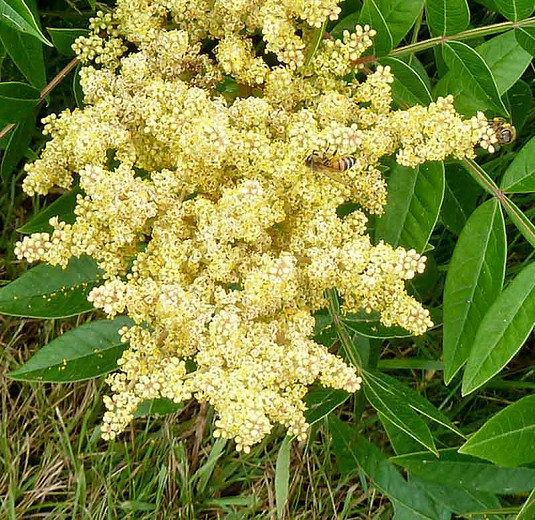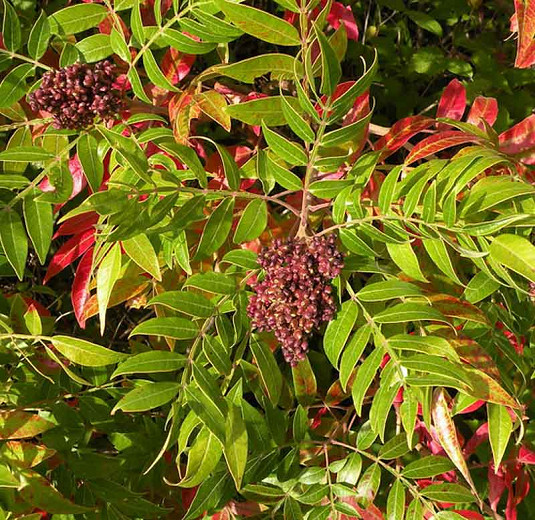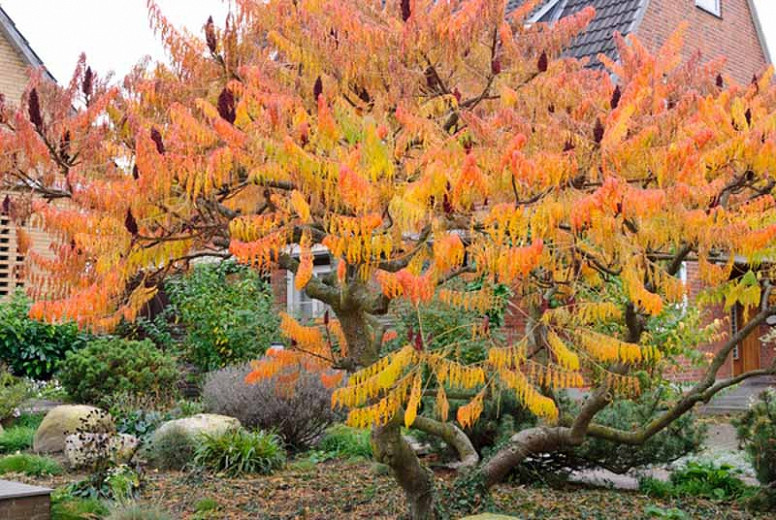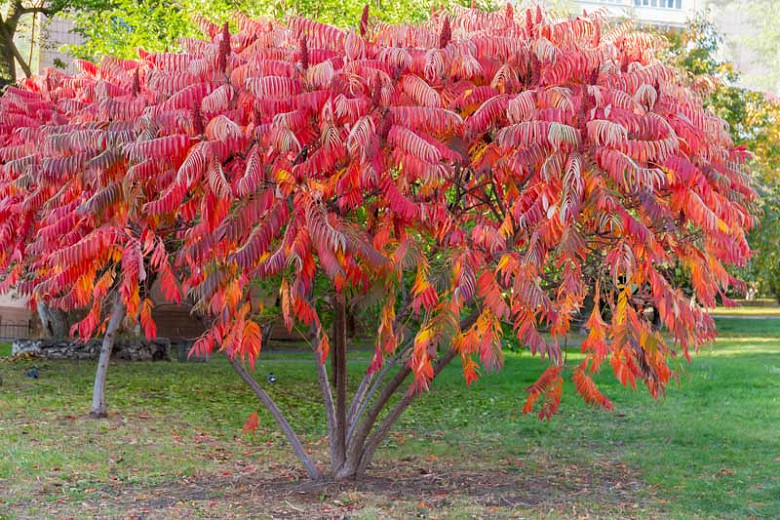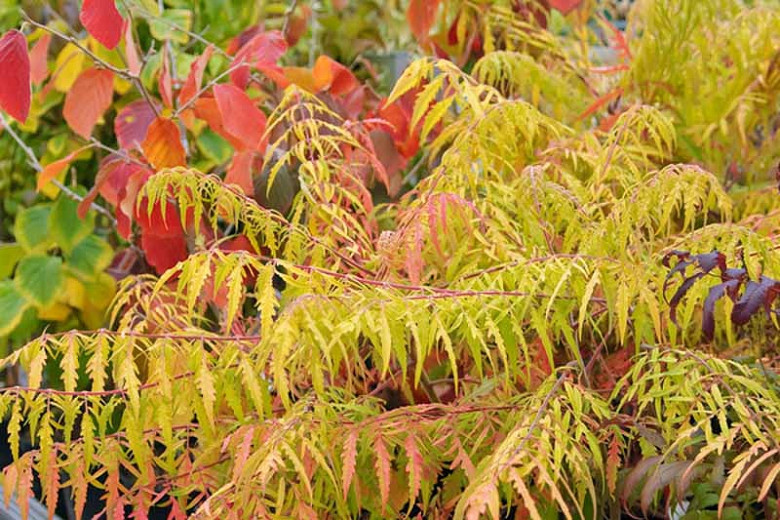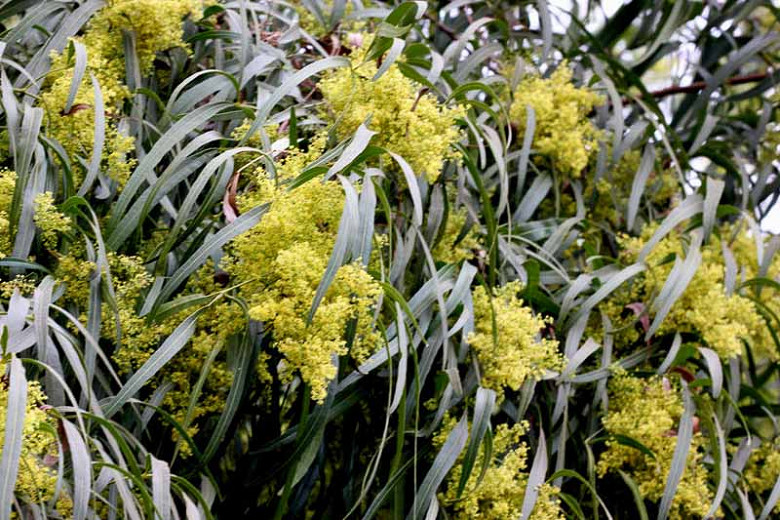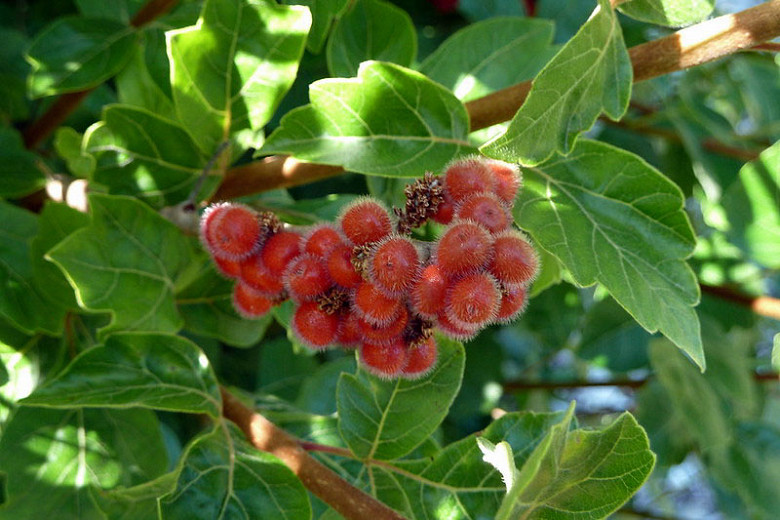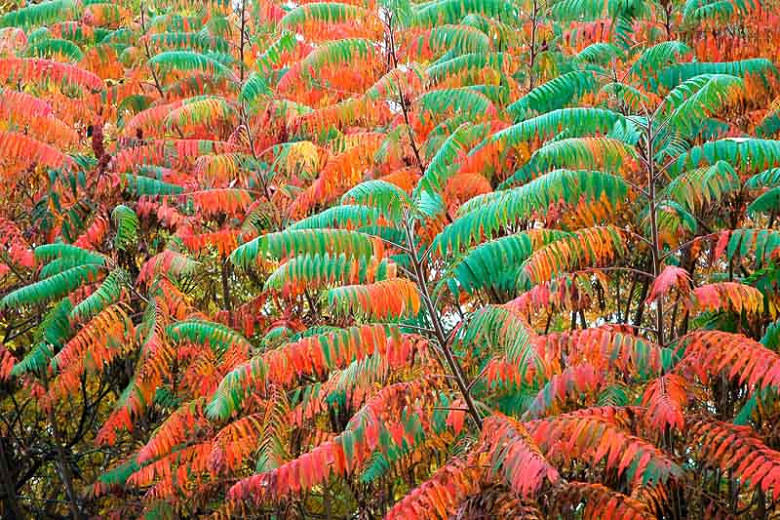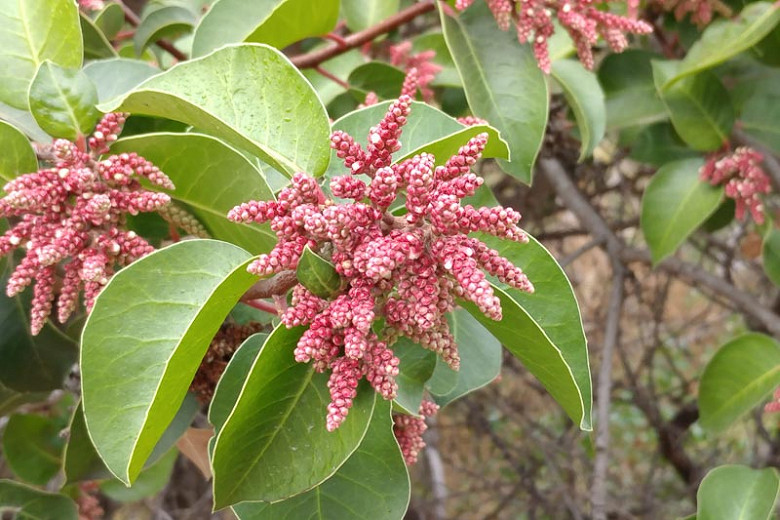Rhus copallinum (Winged Sumac)
Ornamental with its shiny foliage and showy fruit, Rhus copallinum (Winged Sumac) is a colony-forming, deciduous shrub or small tree of large, open, and spreading habit. Native to the eastern U.S., Winged Sumac is dioecious with separate male and female plants. Showy feathery panicles of tiny pale yellow flowers, 4-8 in. across (10-20 cm), appear in mid to late summer. The pollinated female flowers are followed by conspicuous clusters of hairy, red berries in early fall which persist throughout the winter. They provide food for birds and small mammals when other foods are scarce or unavailable. The lush foliage of shiny, dark-green, pinnately compound leaves (9-21 leaflets) turns vibrant orange to fiery red in fall. Fast-growing, easy to grow, usually pest and disease-resistant, drought-tolerant, Rhus copallinum is great for erosion control because of its strong root development. It is useful for massing and naturalizing in dry spots and excellent for wildlife.
- Typically grows up to 7-15 ft. tall (210-450 cm) and 10-20 ft. wide (300-600 cm). Fast-growing, it spreads by root suckers to form large colonies.
- Full sun to part shade lover, this plant is easily grown in average, dry to moist, well-drained soils. Best fall color when planted in full sun. Extremely adaptable to varied soils, it tolerates dry, rocky, and poor soils. Drought and salt tolerant once established.
- Great for stabilizing embankments, native plant gardens, or naturalized areas.
- Generally pest and disease free. Keep an eye out for leaf spot, rust, scale, aphids and mites.
- Propagate by scarified seeds, semi-hardwood cuttings taken in summer through fall.
- Native to the eastern United States.
Requirements
| Hardiness | 5 – 11 |
|---|---|
| Heat Zones | 4 – 9 |
| Climate Zones | 2, 2A, 2B, 3, 3A, 3B, 4, 5, 6, 7, 8, 9, 14, 15, 16, 17, 18 |
| Plant Type | Shrubs, Trees |
| Plant Family | Rhus – Sumacs |
| Exposure | Full Sun, Partial Sun |
| Season of Interest | Summer (Mid,Late)Fall |
| Height | 7' – 15' (210cm – 4.5m) |
| Spread | 10' – 20' (3m – 6m) |
| Water Needs | Low |
| Maintenance | Low, Average |
| Soil Type | Loam, Sand |
| Soil pH | Acid, Alkaline, Neutral |
| Soil Drainage | Well-Drained |
| Characteristics | Showy, Fruit & Berries |
| Native Plants | United States, Midwest, Illinois, Indiana, Iowa, Kansas, Michigan, Missouri, Nebraska, Ohio, Wisconsin, Northeast, Connecticut, Delaware, Maine, Massachusetts, Maryland, New Hampshire, New Jersey, New York, Pennsylvania, Rhode Island, Vermont, Southeast, Alabama, Arkansas, Florida, Georgia, Kentucky, Louisiana, Mississippi, North Carolina, South Carolina, Tennessee, Virginia, West Virginia, Southwest, Oklahoma, Texas |
| Tolerance | Drought, Rabbit, Dry Soil, Rocky Soil, Salt |
| Attracts | Birds |
| Garden Uses | Banks and Slopes |
| Garden Styles | Informal and Cottage, Prairie and Meadow |
